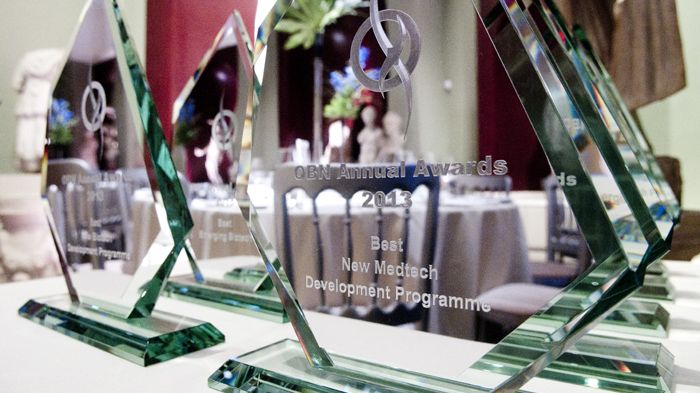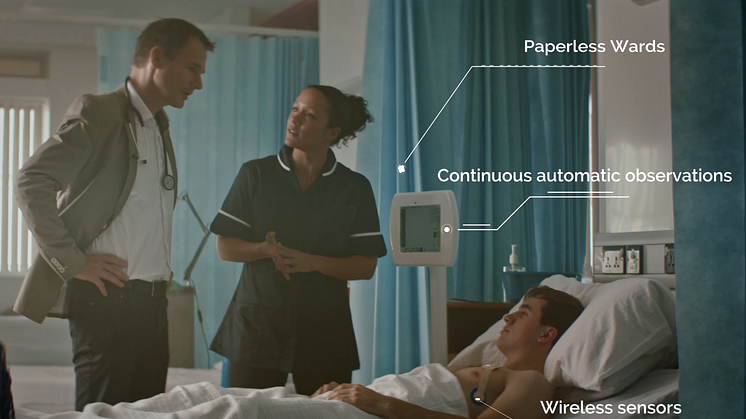
News -
ISANSYS NAMED AS FINALIST FOR THREE MEDTECH CATEGORIES AT OBN 2014 ANNUAL AWARDS
Isansys Lifecare Ltd is very pleased to announce it has been shortlisted for the OBN Awards 2014 in three separate categories.
The shortlist reflects a highly successful year for Isansys. In addition to winning three NHS contracts, the business continues to expand and its workforce has now doubled to 14.
Isansys, the provider of complete real-time physiological patient data services and systems, has been selected as a finalist for the Best New Medtech Development Programme, the Best Emerging Medtech Company, the Best Public-Private Collaboration, Sponsored by Oxford AHSN.
The awards celebrate the key achievements within the bioscience and medical technology sector over the last year. OBN is a not-for-profit business network which provides comprehensive support for biotech and medtech companies in the Oxford and South-East biocluster and beyond.
Keith Errey, CEO of Isansys, which is based in Milton Park, Oxfordshire, says: “It's a great honour for Isansys to be nominated as finalists in three separate categories in the 2014 OBN awards. This is clear recognition of the broad and innovative projects we are working on and illustrates the benefits that our wireless realtime patient monitoring and analysis platform is now bringing to patients, clinicians and nursing staff, and also of the hard work and dedication of our team in developing and deploying these systems.”
The Patient Status Engine is a revolutionary step in the rapidly growing area of digital healthcare - a low cost platform to provide 24/7 surveillance of all patients. By automatically and continuously collecting and analysing patient data, the system can provide alerts and early warnings to clinical staff to allow them to make earlier and simpler interventions and thus prevent many avoidable and costly (both financially and personally) adverse events, regardless of whether the patients are in hospital or at home.
The winners in each of the ten categories will be announced at the OBN Annual Awards Dinner taking place on Thursday 2 October 2014 at the Ashmolean Museum, Oxford. The event will be attended by senior executives and influential players from the most innovative and dynamic biotech and medtech companies in the OBN network.
For more information and the full list of shortlisted companies, please visit: http://www.obn.org.uk/events/obn-annual-awards-dinner/
NOTES TO EDITORS:
About Isansys Lifecare Ltd
Isansys Lifecare Ltd is a new generation healthcare company that provides patient surveillance and monitoring services built on an innovative, low cost and scalable digital platform.
We are working with a number of hospitals in the NHS and other leading healthcare professionals and institutes to deliver patient monitoring services and patient status solutions using the Patient Status Engine platform and new generation wireless vital signs monitors.
We operate in a wide range of healthcare settings which want to employ new patient monitoring technologies and methods to improve patient outcomes and reduce costs.
For more information about Isansys please log into www.isansys.com
Photos and interviews available on request

